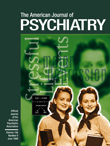Placebos, Drug Effects, and Study Design: A Clinician’s Guide
Abstract
OBJECTIVE: This article examines the role of placebos in evaluating the efficacy of psychiatric drugs. Also addressed are the identification of placebo effects on drugs, the relevance of active placebo, the need for placebo groups in psychotherapy studies, and ethical issues concerning the use of placebo. METHOD: Psychiatric drug treatment trials were reviewed. RESULTS: Emphasis was placed on studies with ambiguous outcomes, studies using an active placebo, and studies attempting to understand the role of placebo effects on patients receiving a drug. The concept of pattern analysis for identifying true drug effect is reviewed. Evidence that placebos are required to prevent a false conclusion about drug efficacy is presented. The public health implications of concluding that an ineffective drug is beneficial are examined. Active placebos do not appear necessary, and there is some evidence that the odds of identifying a patient who has improved as a result of true drug effect (as opposed to placebo effect) exceed chance with pattern analysis. CONCLUSIONS: Psychiatric disorders have a fluctuating course, psychiatry’s phenomenologically based nosological system is inexact, and the interaction between these two leads to a large proportion of patients experiencing a placebo effect. It may be possible to identify patients receiving an antidepressant who improved as a result of a placebo effect. This is an educated guess that may be helpful in planning the treatment of patients who have a contraindication to continuing a psychopharmacological regimen.



